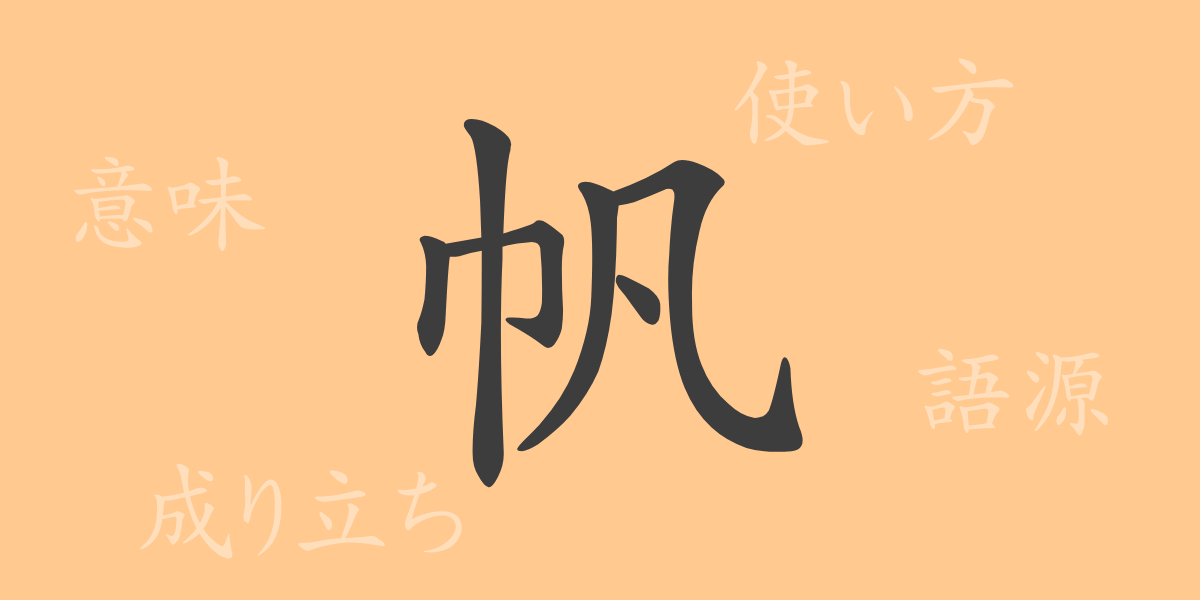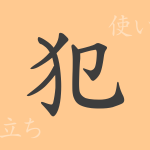“Sail” is a character that colors the history of the seas. Encapsulated within this single character are the adventures of ancient mariners and the condensed wisdom of humanity. What history does the kanji “帆” (ハン, ほ) hold, and how is it rooted in our daily lives? This article delves into the origins, meaning, usage, pronunciation, and idioms of “帆”, exploring its allure.
Origins of 帆 (ハン, ほ)
The character “帆” (ハン, ほ) evolved from a pictograph representing a cloth billowing in the wind, originally denoting the cloth used as a sail in ancient China. Its shape, suggestive of a sail filled by the wind, made this kanji an apt representation for sails in nautical contexts, playing a vital role in navigation.
Meaning and Usage of 帆 (ハン, ほ)
The kanji “帆” (ハン, ほ) primarily signifies a ship’s sail. It also extends to denote sailboats or the act of setting sails. Metaphorically, it is used to describe smooth progress in endeavors or a state brimming with hope.
Pronunciation, Stroke Count, and Radical of 帆 (ハン, ほ)
Basic information about “帆” (ハン, ほ) includes:
- Pronunciation: The on-reading is “ハン” (ハン), and the kun-reading is “ほ” (ほ).
- Stroke Count: Total of 6 strokes.
- Radical: The radical is 巾 (はば, きんべん).
Idioms, Phrases, and Proverbs Using 帆 (ハン, ほ) and Their Meanings
There are various idioms and phrases that include “帆” (ハン, ほ), each with its unique meaning:
- 帆船 (はんせん): A ship that moves using sails.
- 帆掛け (ほかけ): The act of setting sails on a ship.
- 帆を張る (ほをはる): An idiom expressing active engagement in matters.
- 順風満帆 (じゅんぷうまんぱん): An idiom meaning everything is going very smoothly.
Summary on 帆 (ハン, ほ)
The kanji “帆” (ハン, ほ) is more than just a character; it holds a rich history and meaning. From its direct use as a sail on seafaring ships to expressions wishing for a life or venture to be smooth sailing, it is utilized in various contexts. This powerful character, embodying the will to forge ahead, allows us to incorporate “帆” into our daily usage, feeling its strength and momentum.

























